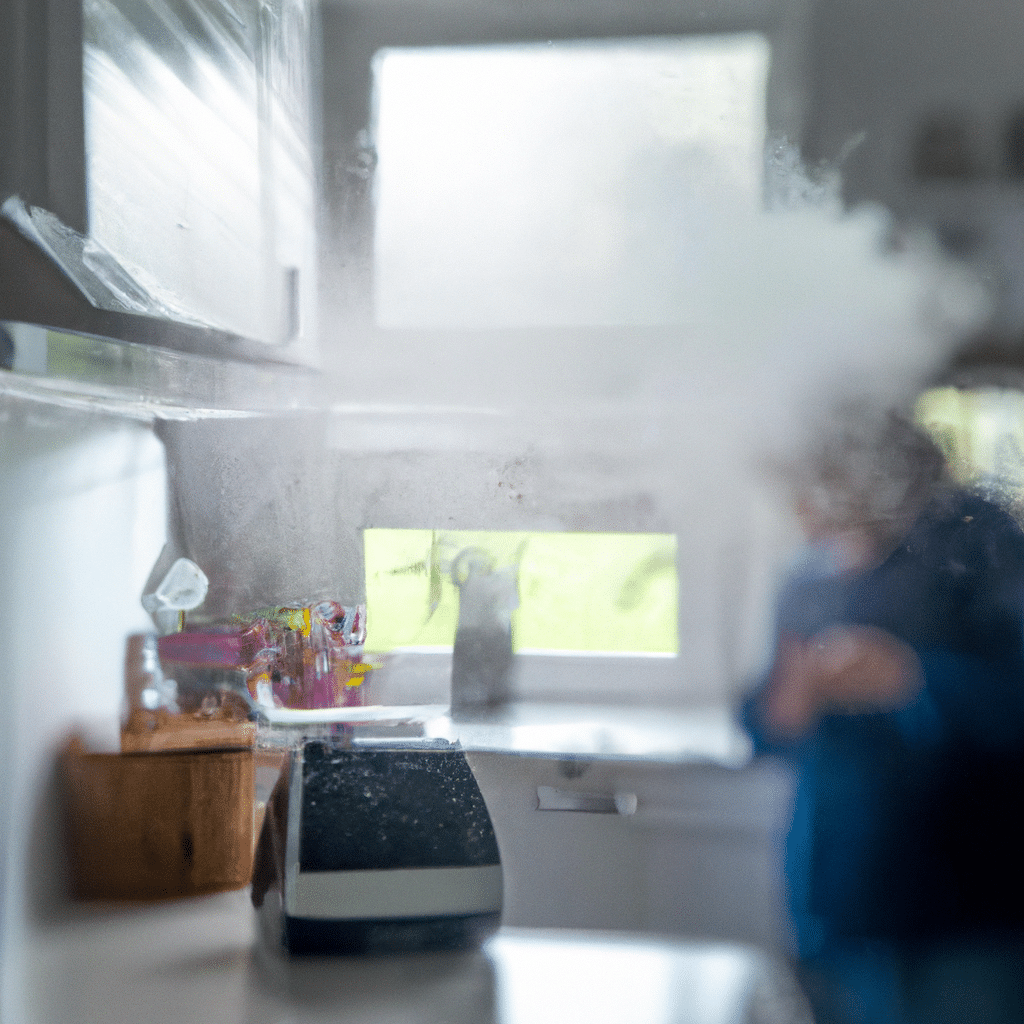As we all know, high humidity levels can be a nuisance in any room of the house, but kitchens are particularly susceptible to this problem. The combination of cooking, washing dishes, and other activities can create a lot of moisture in the air, leading to a range of issues from mold and mildew growth to rusted appliances and warped cabinets. In this article, we will explore some common kitchen humidity issues, and offer practical solutions to help you keep your kitchen dry and comfortable.

Understanding Kitchen Humidity
Before we dive into the specific problems and solutions, it’s important to understand what causes high humidity levels in the kitchen, and why it’s such a concern. Essentially, humidity is a measure of the amount of water vapor in the air, and it can be influenced by a range of factors including temperature, ventilation, and activities like cooking and cleaning.
In the kitchen, cooking is one of the biggest contributors to humidity. When you cook food, steam and moisture are released into the air, which can quickly build up and cause problems. Other sources of moisture in the kitchen can include washing dishes, using the dishwasher, and even breathing. When humidity levels get too high, it can create a range of issues such as mold growth, musty odors, and even damage to your appliances and cabinets.
Common Kitchen Humidity Issues
With that in mind, let’s take a look at some of the most common kitchen humidity issues you may encounter, and what you can do to address them:
Mold and Mildew Growth
One of the most obvious signs of high humidity in the kitchen is the growth of mold and mildew. These fungi thrive in moist environments, and can quickly take hold on surfaces like walls, ceilings, and even food. Not only is mold unsightly, it can also cause health problems like allergies and respiratory issues.
To prevent mold and mildew growth in the kitchen, it’s important to keep humidity levels under control. This can be done by using an exhaust fan while cooking, opening windows to improve ventilation, and using a dehumidifier if necessary. You should also be sure to clean up any spills or moisture promptly, and regularly inspect your kitchen for signs of mold or mildew growth.
Warped Cabinets
Another common problem caused by high kitchen humidity is warped cabinets. When wood is exposed to moisture for an extended period of time, it can warp and become misshapen. This can cause issues with the functionality of your cabinets, as well as detracting from the overall appearance of your kitchen.
To prevent warped cabinets, it’s important to maintain a consistent humidity level in your kitchen. This can be achieved by using a dehumidifier or air conditioner to reduce moisture in the air. You should also avoid leaving wet dishes or towels on your cabinets, and be sure to wipe up any spills or moisture right away.
Rusty Appliances
High humidity levels can also cause rust to form on your kitchen appliances. This can be particularly problematic for metal appliances like refrigerators and stoves, as rust can cause them to deteriorate and eventually fail.
To prevent rust from forming on your appliances, it’s important to keep them dry and clean. Be sure to wipe down your appliances regularly to remove any moisture or debris, and consider using a rust-inhibiting spray to protect them from damage.
Musty Odors
Finally, high humidity levels in the kitchen can also lead to musty odors. These unpleasant smells can be caused by mold and mildew growth, as well as other factors like stagnant water or food waste.
To eliminate musty odors in your kitchen, it’s important to address the underlying humidity issue. This can be done by improving ventilation, using a dehumidifier, and regularly cleaning your kitchen to remove any sources of moisture or odor.
Conclusion
In conclusion, high humidity levels in the kitchen can cause a range of problems from mold growth and warped cabinets to rusty appliances and musty odors. By understanding the causes of kitchen humidity and taking proactive steps to prevent it, you can keep your kitchen dry, comfortable, and free from the issues that can arise from excess moisture. Whether you’re using an exhaust fan, opening windows, or investing in a dehumidifier, there are plenty of practical solutions to help you keep your kitchen in top condition.

